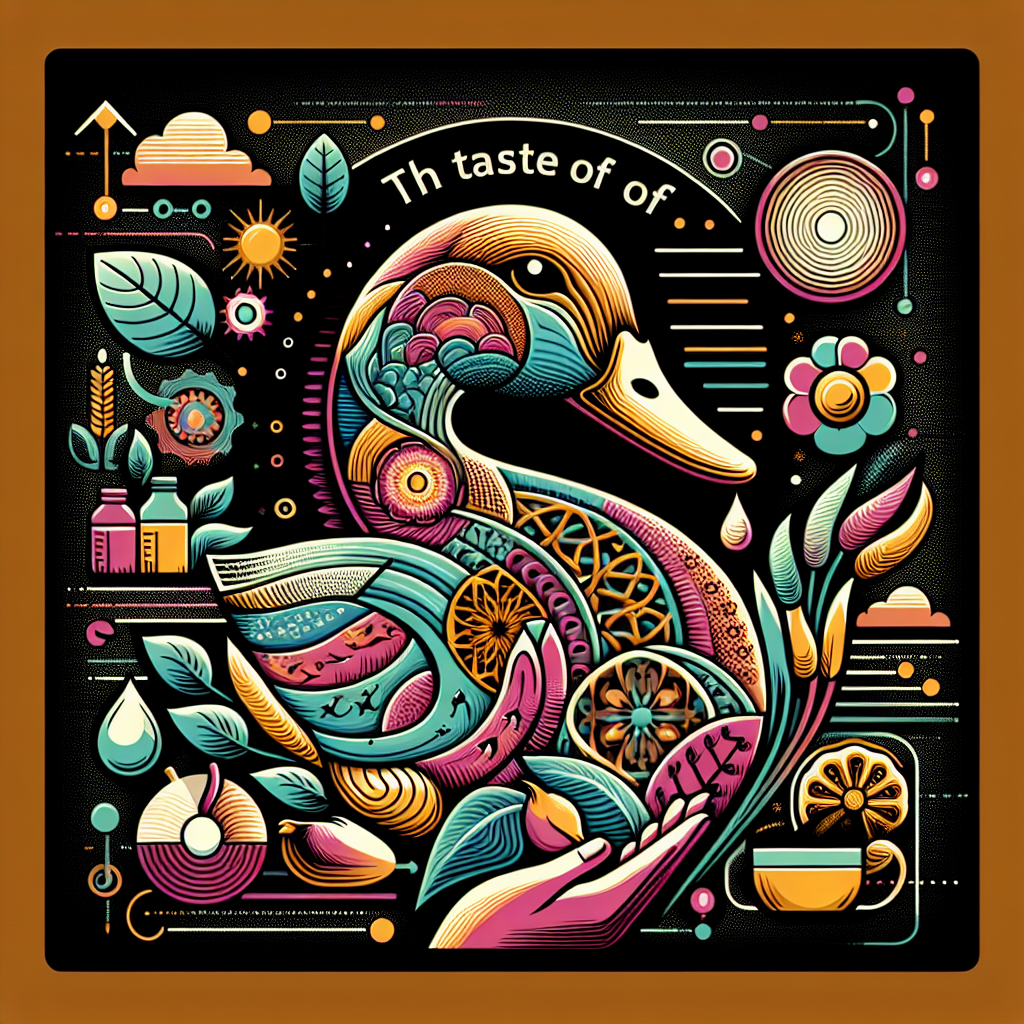Understanding the Taste of Duck: An Exploration into a Popular Poultry Delicacy
In today’s culinary world, the taste of different types of meat has become a subject of great interest and exploration. One such meat that has gained significant recognition and intrigue is duck. Known for its distinctive flavor and versatility, duck meat has become a favored delicacy among food enthusiasts and chefs.
The Key Aspects of Duck’s Flavor Profile
Duck meat offers a unique taste that sets it apart from other poultry options. While its flavor can vary depending on the type, breed, diet, and cooking method, some key aspects define the taste of duck:
- Richness and Depth: Duck meat is often described as rich and flavorful, with a depth of taste that surpasses chickens or turkeys. Its robust flavor provides a gourmet experience that is particularly appreciated in haute cuisine.
- Gamey Notes: Unlike most domesticated poultry, duck can have subtle gamey undertones that add complexity to its taste. These notes contribute to its uniqueness and give it an edge in terms of its diverse culinary applications.
- Fatty and Moist: Due to the higher fat content compared to chicken or turkey, duck meat tends to be moist and succulent. The layer of fat adds both flavor and tenderness to the meat, making it an ideal choice for luxurious dishes.
The Benefits and Challenges of Cooking with Duck
While the taste of duck offers a range of possibilities in the kitchen, it is essential to consider the benefits and challenges associated with cooking and consuming this flavorful meat:
- Versatile in Cooking: Duck meat lends itself to various cooking methods, whether roasting, braising, grilling, or pan-searing, making it a flexible ingredient for home cooks and professional chefs.
- Complements Various Flavors: Due to its rich taste and fatty texture, duck pairs well with a wide range of ingredients and flavors, from fruity sauces to earthy herbs and spices.
- Higher Fat Content: The high fat content in duck can be a challenge for individuals who prefer a leaner diet. However, when consumed in moderation, the fat in duck offers added flavor, moistness, and provides essential nutrients.
- Cooking Considerations: Cooking duck can be trickier compared to other poultry due to its higher fat content. Proper cooking techniques are necessary to ensure the fat renders out without leaving the meat greasy.
The taste of duck not only satisfies the palates of avid food enthusiasts but is also an important ingredient in various cuisines worldwide. Exploring the flavors and understanding the nuances of duck meat connects to the broader trends of exploring unique flavors, choosing more sustainable protein sources, and appreciating the art of gastronomy.
Next, we will delve further into the various factors influencing the taste of duck, including breed variations and cooking methods, enabling you to discover the diverse and exciting culinary possibilities that duck has to offer.

Practical Tips for Understanding the Taste of Duck
1. Try different cooking methods:
Experiment with various cooking techniques to bring out the best flavors in duck. Roasting, braising, grilling, or searing can all yield different taste profiles. Some methods may result in a crispier skin or tender meat, while others may create a smoky or savory flavor. By exploring different cooking techniques, you can discover your preferred way of enjoying duck.
2. Pair with complementary ingredients:
Duck’s rich and flavorful meat pairs well with a variety of ingredients. Balancing the flavors can enhance your overall dining experience. Consider complementing the richness of duck with ingredients like cherries, oranges, honey, or balsamic vinegar. The acidity or sweetness of these ingredients can help cut through the richness of the meat and create a harmonious flavor combination.
3. Experiment with seasonings and spices:
Duck is versatile and can be enhanced with the use of seasonings and spices. Marinating the meat with herbs like thyme, rosemary, or sage can infuse additional layers of flavor. Don’t be afraid to try different spice blends or rubs, such as Chinese five-spice powder or Moroccan Ras el Hanout, to elevate the taste of your duck dish.
4. Consider the cooking time:
The duration of cooking can greatly impact the taste and texture of duck meat. If you prefer a more tender and succulent texture, cook the duck medium-rare or medium to retain some pinkness in the center. However, for a well-done and firmer texture, cook it longer until the meat is fully cooked throughout. Understanding the desired doneness can help you achieve the perfect taste and texture that suits your preference.
5. Explore regional cuisines:
Different cultures have their own unique ways of preparing and seasoning duck dishes. Exploring regional cuisines, such as French, Chinese, or Middle Eastern, can introduce you to a wide range of flavors and preparations. Trying dishes like Peking duck, confit, or duck à l’orange can provide new perspectives on the taste of duck and inspire you to incorporate different techniques into your cooking.
By following these tips, you can better understand the taste of duck and enhance your enjoyment of this versatile meat. Whether you’re a home cook or a food enthusiast, these practices will help you create delicious duck dishes tailored to your preferences and solve any challenges you may encounter while cooking with duck.

